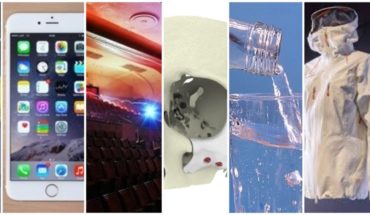Robot swarms and quantum sensors are among the new technologies set to advance the future of UK intelligence, with six engineering researchers being supported in the latest round of UK Intelligence Community (IC) Postdoctoral Research Fellowships.
Focusing on areas of basic research, the research fellowships support cutting edge developments in topics that can assist the intelligence community while providing mentoring to a new generation of engineers.

The research fellowships, which are offered by the Government Office for Science and administered by the Royal Academy of Engineering, provide a vital link between academia and the intelligence community. Each awardee receives funding for at least two years of their project and mentorship from a Fellow of the Academy as well as an advisor from the intelligence community.
Professor Anthony Finkelstein CBE FREng, Chief Scientific Adviser for National Security to HM government and a Fellow of the Academy, said:
“We in the national security community were very impressed by the quality of response to the UK IC Postdocs call earlier this year. The research fellows who were appointed cover areas of science and engineering with a growing importance for security, from graph theory and novel chemical analysis to quantum sensors. Past experience has shown us that these research fellows do great work in topics that really matter to government stakeholders, and the research fellows themselves gain valuable experience of working with colleagues from a range of different government departments. We welcome the 2019 research fellows to the programme.”

The new postdoctoral researchers are:
Radio frequency and microwave trapped-ion quantum sensor for counter-eavesdropping
Dr Harry Bostock, University of Sussex
Dr Bostock’s research focuses on quantum sensing using trapped ions. This emerging technology offers a new and better way to sense radio frequency and microwave radiation using trapped Ytterbium ions trapped on two-dimensional micro-fabricated chip traps. Thanks to its very precise frequency tuning and low sensitivity, applications include the detection of eavesdropping devices, narcotic and explosive sensing as well as RADAR.
Risk-sensitive robot swarms for effective environmental monitoring
Dr Edmund Hunt, University of Bristol
A robot swarm could be used to deploy a dynamic network of sensors in a hazardous environment with a subset of robots that move closer to detected anomalies to inspect them at a higher resolution. Dr Hunt aims to use insights from behavioural biology and financial risk management to develop risk-sensitive swarm control algorithms.
Scalable partitioning of large complex networks
Dr Luce le Gorrec, University of Strathclyde
Dr le Gorrec’s research focuses on extracting and processing information from complex networks, which have become a key tool in many fields. With the complexity of systems growing exponentially, manual analysis is becoming more difficult. Dr le Gorrec’s research will develop tools to handle large-scale networks.
Optomechanical sensors: rapid prototyping for navigation and quantum technologies
Dr Ying Lia Li (Lia), University College London
Dr Li develops chip-scale optomechanical sensors that improve navigation accuracy through improved measurements of acceleration and rotation. Where GPS is not available, these inertial sensors could replace the technologies currently used for providing dead-time measurements and stabilisation in quantum navigation systems. Rapid prototyping is achievable based on prior field-testing of a prototype accelerometer.
Identification of illegal threat manufacturing activity via wastewater markers (ThreatMARK)
Dr Keng Tiong Ng (Kelvin), King’s College London
Early identification of the illicit manufacture of chemical and biological threat agents is critical for public safety. Dr Ng is developing new methods to identify and monitor illegal activity by monitoring sewer systems for synthesised compounds, their markers, precursors, by-products and transformation products.
Novel Methods for Automated Error Detection in Diverse Data Types
Dr Cédric Spire, Brunel University London
Accurate data and information is often not available to train computer systems to model real-world problems. In order to relieve analysts from cleaning the data by hand, Dr Spire’s research advances a novel Bayesian methodology to automatically detect and correct errors. His direct application will be on data provided by law-enforcement bodies.
- world’s first wireless foetal monitor win prestigious award - 2nd January 2020
- Six engineering researchers awarded grants to advance national security - 30th December 2019
- Simba designs duvet system to avoid arguments in the bedroom - 19th December 2019






